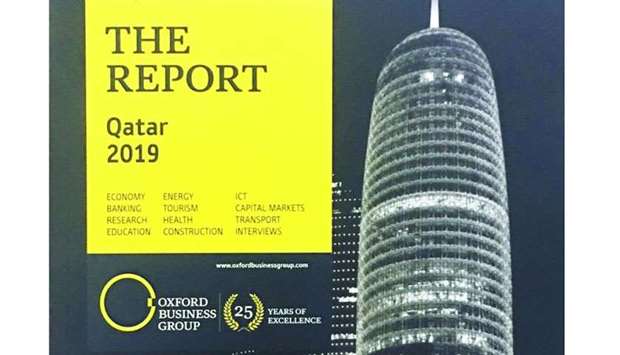Of the 25,000 private sector businesses currently registered in the country, more than 96% are classified as small and medium-sized enterprises (SMEs), said Qatar Development Bank (QDB) CEO Abdulaziz bin Nasser al-Khalifa.
The increased focus on SMEs by the government highlights the important role they play in the economy, he said.
In light of this, expanding the segment and providing greater opportunities for smaller firms to take part in state-backed projects will significantly increase the number of jobs and boost economic growth, al-Khalifa told Oxford Business Group.
According to Ministry of Finance forecasts, local firms could provide up to 90% of supplies for state projects in the coming years, with the authorities looking to improve the capacity and diversification of services offered by SMEs.
Increased activity for local businesses and efforts to develop SMEs align with the broader national strategy aimed at boosting the private sector’s contribution to the economy, he said.
The country’s second National Development Strategy (NDS) 2018-22, set the agenda for economic, social and human development for the next five years, building on the first NDS, while also dovetailing into the broader goals of the Qatar National Vision 2030.
“In short, for us to maintain our competitiveness, we need the support of local SMEs and an ongoing influx of innovative business ideas that carry national, regional and international relevance,” al-Khalifa noted.
Asked what extent will the changing market dynamics impact local financial institutions and, as a result, private sector credit growth, the QDB chief executive officer said, “Qatari banks are well positioned due to their scale, the size of their reserves and the country’s GDP per capita. This means that they are well equipped to withstand any prolonged shocks. Local banks are engrained in Qatar’s growth story, as our country is still in the process of building the infrastructure and making preparations for the 2022 FIFA World Cup.
“These projects are expected to drive spending and growth on a sustainable basis. I am proud of the fact that Qatar’s economy has successfully absorbed the challenges that recently faced the country as well as adapted and grown during this period.”
“Moving forward, we believe that stronger non-hydrocarbon, private sector growth and a healthy performance of the stock market would further boost our economy.”
Qatar’s banking sector is liquid and can provide the required funding options for Qatari firms, while some of the more developed companies in the country were able to access international capital markets, he told OBG.
Scaling up the competitiveness of SMEs requires forging partnerships among key stakeholders, he said.
QDB’s partnerships with entities such as Ooredoo, Sasol, Qatar Chamber and QNB have helped lead economic diversification and private sector development. In 2016, the multi-service support centre one-stop shop was launched to cater to SMEs at the Qatar Business Incubation Centre.
For this, QDB co-ordinated with the Ministry of Justice, Ministry of Energy, QNB, Ooredoo and Qatar Postal Services Company. This has allowed entrepreneurs and SME owners to gain access to developmental resources in a single location, including a wide range of QDB’s products and services to support the growth of SMEs.
QDB also joined hands with local entities and international corporates, institutions of higher education and petroleum companies to organise competitions for the creation of local start-ups, such as the ‘Al Fikra’ National Business Competition.
In 2017 the ‘Ma’an’ (together) initiative was launched together with the Qatar Chamber and Qatar University, aiming to promote the role of a knowledge-based economy by investing in the ideas of our youth and raising a new generation of young entrepreneurs together, he said.


